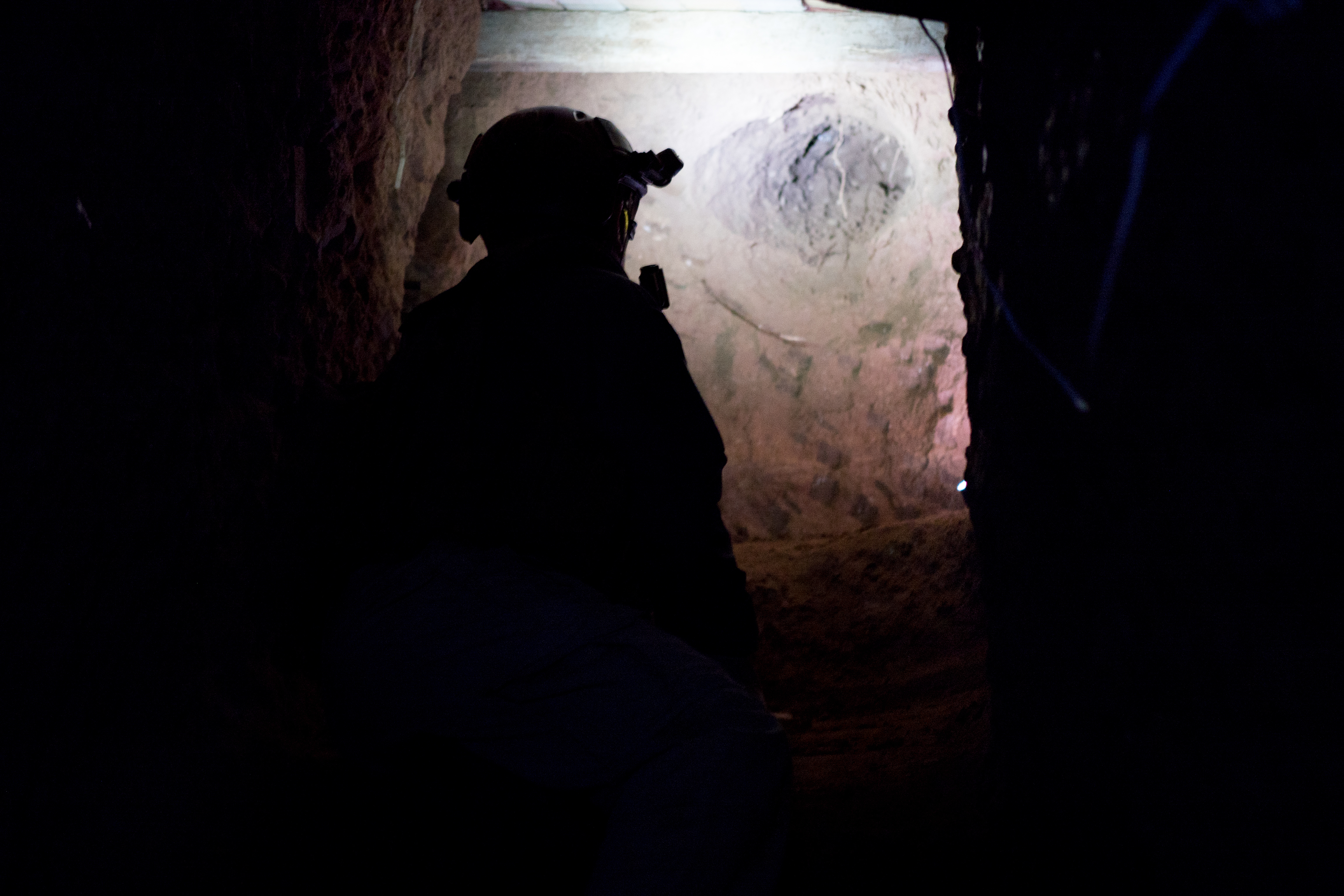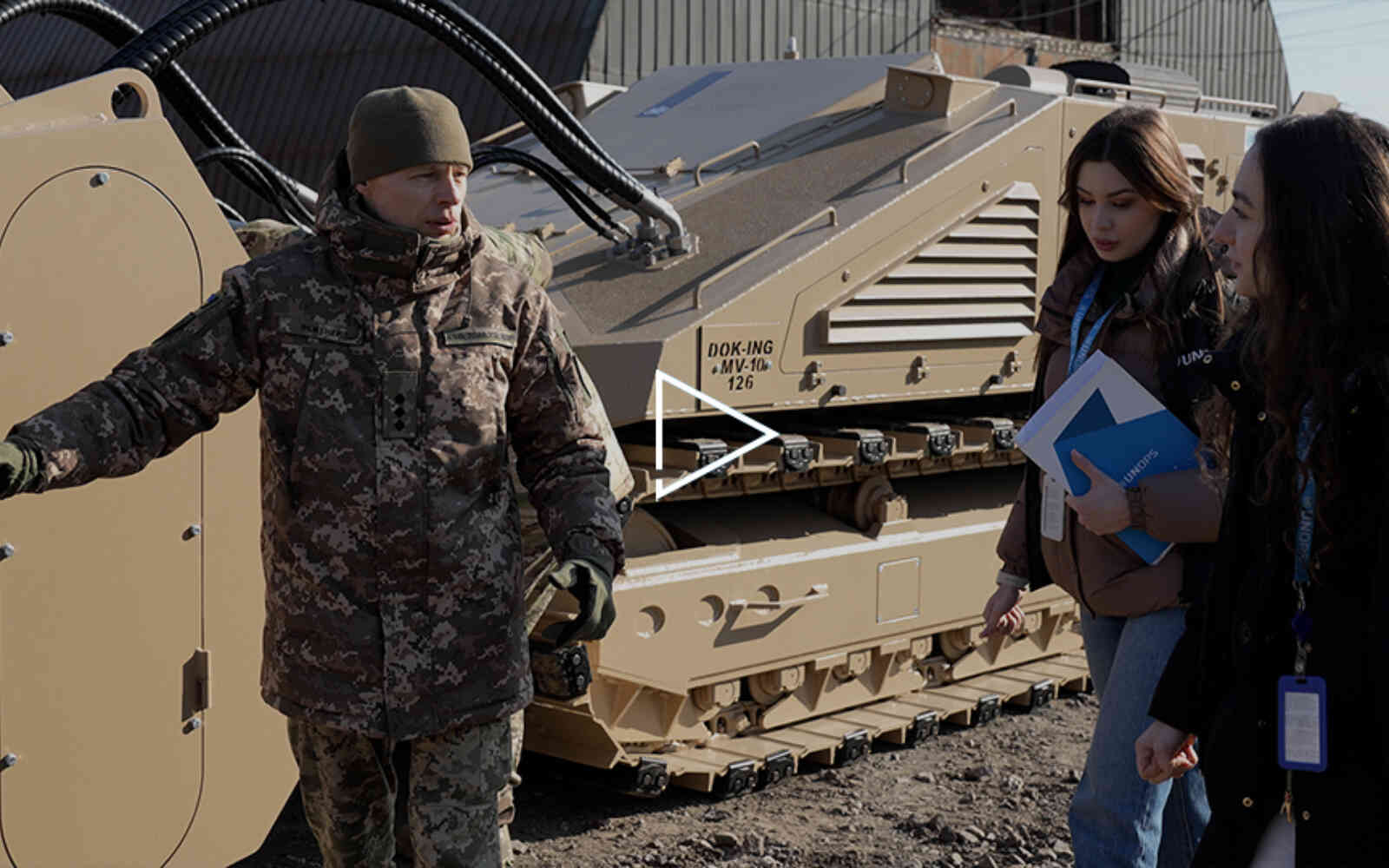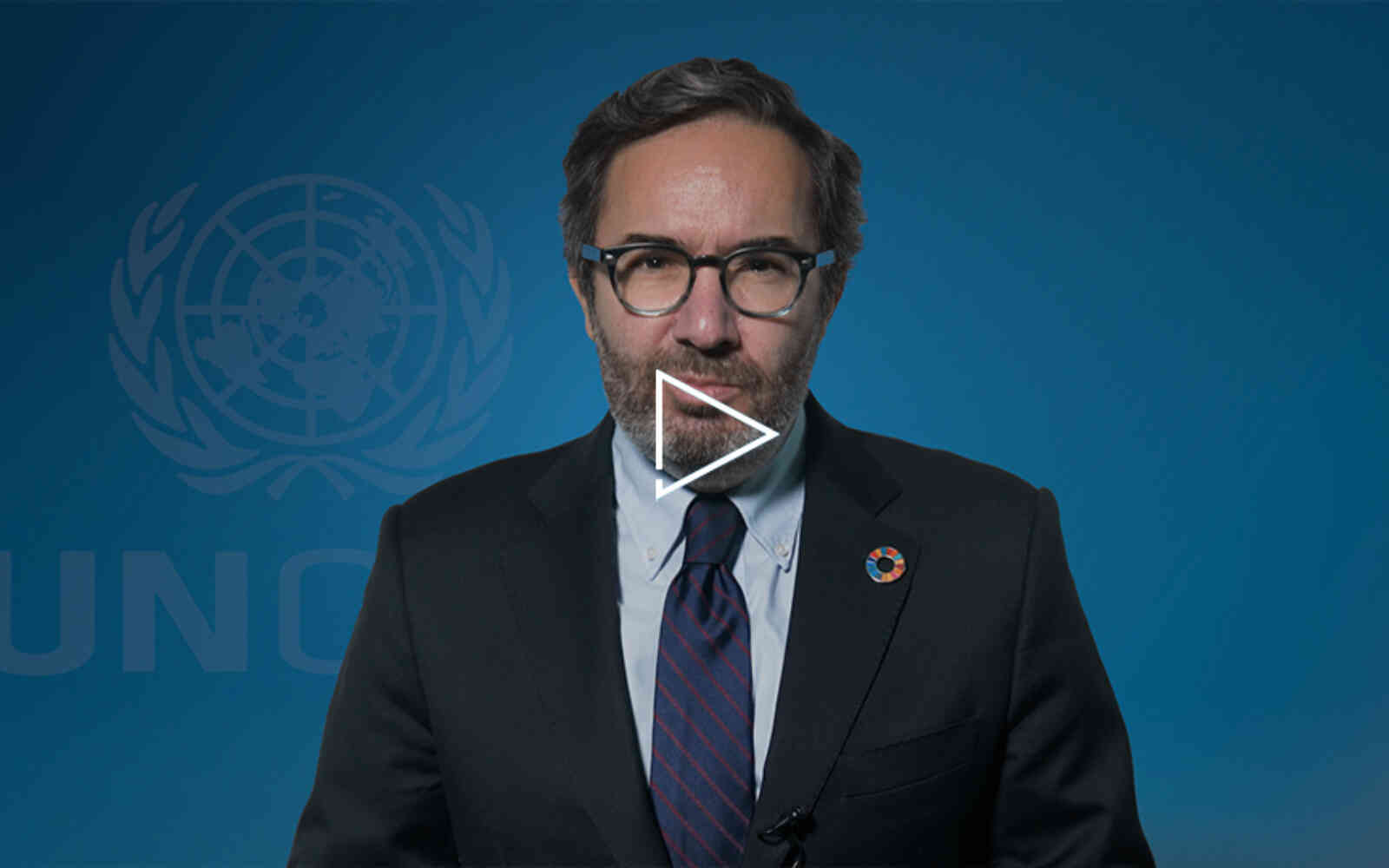The United Nations Office for Project Services (UNOPS)

How can we get more women into mine action?
Mine action work has long been a male-heavy field. It shouldn't be – here's how to change it.
- Photo: ©UNMAO/Elena Rice
Across a range of fields, we're still having conversations about the need for gender equality. Mine action is no exception.
Consider this: When you think of someone working in mine action, what picture springs to mind? Is it an older man, perhaps in his 40s or 50s who's transitioned from a military career to a career in mine action as a civilian?
This might be because the military and the police – both very male-dominated fields – are the traditional recruiting grounds for people to work in mine action. Like any male-dominated field, there are certain perceptions around what's considered a 'man's job' and what's a 'woman's job' – with many people historically viewing mine action as falling firmly into the category of a man's job.
For too long, the mine action field has essentially been cutting off over half of the pool of potential candidates. And if we don't have representation from the population, how can we address the needs of all people and ensure a lasting impact?
One of the biggest challenges in mine action is increasing the number of women in technical roles – roles that still require explosive ordnance disposal (EOD) certifications. Bridging this gap isn’t easy because it's not just down to expanding or improving outreach capabilities. Globally, the pool of women with these types of certifications is very small.
To address this, UNOPS Peace and Security Cluster is looking at partnering with an NGO to start a training programme for EOD certifications that targets women. The intent is to have women who are currently working with us interested in receiving EOD certifications having the opportunity to do so.
In addition to this training programme, we're exploring other avenues to provide women with the opportunities to get EOD certification. This will help enlarge the pool of qualified women applicants and help encourage more women to join the mine action sector.
GETTING THE BEST AND THE BRIGHTEST
Over the years, mine action as a whole has evolved. Although some technical positions still require very specific certifications, many positions do not. And the skills that were needed 20 years ago are not always the same skills needed today. For example, now we also need more project and programme managers in mine action.
But often the way these types of positions are advertised deters women from applying. Reflecting the reality of what skills are needed now versus the past requires analyzing the way mine action job vacancies are advertised.
Members of the UNOPS Peace and Security Cluster, in their support to UN Mine Action Service (UNMAS) in Mali, took on this challenge by re-assessing the programme as it is now and where it needs to be in the future – and how that translates into the way recruitment is done.
A long list of technical military experience under the 'desired' category, for example, could be stopping people without a military background from applying.
Amending the certification requirements or the number of years of military experience required, as well as recognizing non-military experience (such as work with mine action non-governmental organizations or in law enforcement) could help address this. Using a targeted and proactive approach to recruitment can also increase the diversity of the applicant pool.
The Chief of Operations for the Mali programme, for example, actively identifies and reaches out to women who have transferable skills that are a good match for the mine action work done in the country.
Breaking down job profiles and really examining what skills are now needed for positions that have evolved over time – coupled with cold call outreach techniques – could help identify suitable people for posts, who are then encouraged to apply.
The end result: a better ability to hire the best and the brightest in mine action – women and men – and a diverse workforce that can address the needs of all men, women, boys and girls.
Jean-Guy Lavoie
Jean-Guy Lavoie is the Senior Programme Manager of the UNMAS Mali Programme, which is implemented by UNOPS. He has more than 10 years of experience in mine action, including in Cameroon, Colombia, Lebanon and the State of Palestine. He also has over 25 years of experience as a military officer, police supervisor and bomb technician in Canada, where he also worked as a police explosives instructor.













